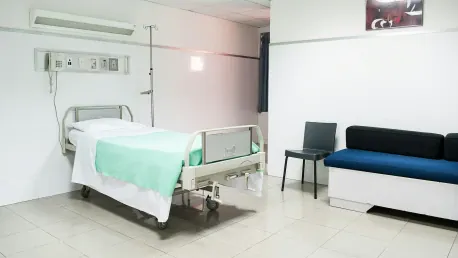Saskatchewan Blue Cross has made a significant contribution by donating $34,100 to fund essential healthcare equipment for rural hospitals across Saskatchewan, demonstrating a strong commitment to improving healthcare access in remote areas. This initiative stands as part of their broader Community Investment Program, which annually invites applications from rural hospitals to fund small healthcare projects and equipment purchases. The role of this program cannot be overstated, as it addresses the pressing need for accessible medical resources in these often underserved regions, making it a critical effort in reducing healthcare disparities between urban and rural areas. This recent wave of funding underscores the vital importance of having well-equipped healthcare facilities in all corners of the province, ensuring that no community is left behind when it comes to medical care.
Among the most notable recipients of this donation is the Biggar and District Health Services Foundation, awarded $5,000 for a pediatric crash cart. Carla May, a registered nurse at Biggar Health Centre, emphasized the life-saving importance of such well-organized and readily available tools in successful emergency resuscitations. She pointed out how vital this equipment is for the community’s well-being, especially for young patients. The presence of a pediatric crash cart can be the difference between life and death in critical situations, providing healthcare professionals with the necessary resources to perform quick and effective medical interventions.
Diverse Allocations of Critical Funds
This generous funding is being distributed across various healthcare facilities, ensuring a broad and inclusive impact. In addition to the substantial support for Biggar, the Alex Ositis Foundation received $4,995 to acquire an Alaris PK Syringe Pump, a sophisticated device that ensures precise medication delivery, which can be pivotal in managing patient care. The Grenfell District Health Foundation was granted $6,000 to purchase a new microscope, an indispensable tool for accurate diagnosis and research, thus enhancing the quality of medical investigations and treatments available in that region.
Further demonstrating the comprehensive nature of this initiative, the Boreal Health Foundation was awarded $7,000 for a patient lifting tool, an essential piece of equipment that improves the safety and comfort of both patients and healthcare workers. In Moose Jaw, the Health Foundation benefited from a $9,500 donation to acquire a pediatric bed, an essential addition to their pediatric care unit. Lastly, the North Central Health Care Foundation received $1,600 to purchase two wheelchairs, significantly improving patient mobility and overall care quality. Each of these donations addresses specific needs based on the unique challenges and requirements of the respective rural healthcare facilities.
Leadership and Future Commitment
Saskatchewan Blue Cross made a notable impact by donating $34,100 to equip rural hospitals in Saskatchewan with essential healthcare tools, showcasing their commitment to enhancing healthcare access in remote areas. This move is part of their broader Community Investment Program, which annually invites rural hospitals to apply for funding for small healthcare projects and equipment. The program’s importance lies in meeting the critical need for medical resources in underserved areas, playing a key role in reducing healthcare disparities between urban and rural regions. This recent funding emphasizes the necessity of well-equipped healthcare facilities throughout the province, ensuring no community is neglected regarding medical care.
A significant beneficiary of this donation is the Biggar and District Health Services Foundation, which received $5,000 for a pediatric crash cart. Carla May, a registered nurse at Biggar Health Centre, highlighted the indispensable role of such tools in emergency resuscitations. She stressed the equipment’s importance for young patients, noting that a pediatric crash cart could be the deciding factor between life and death in emergencies. This ensures healthcare professionals have the resources to perform swift and effective medical interventions.









